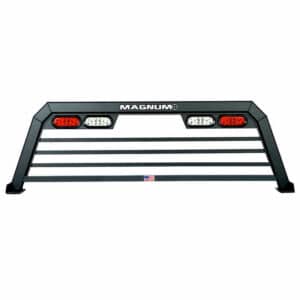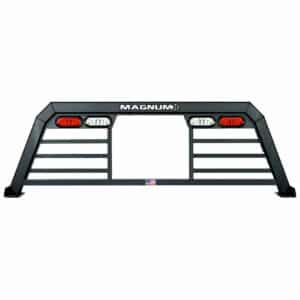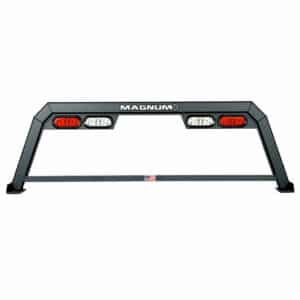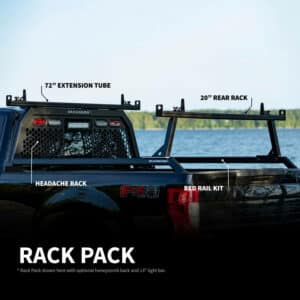Lift Kits 101: Everything You Need to Know Before Committing to a Lift Kit
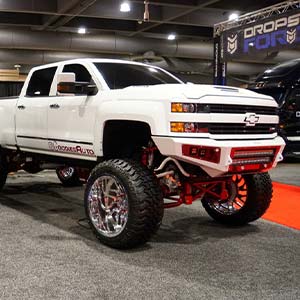
Let’s talk lift kits. Large or small, there’s a kit out there for everyone. Looking to squeeze in some larger tires? Lift it! Need some additional ground clearance? Lift it! Just want to do it for the heck of it? We’re here to tell you to lift it! But are lift kits as straightforward as they seem? For the most part, yes. But there are details that you should understand before you settle on lifting your ride. You can consider this the lift kit 101 breakdown to help you understand everything you need to know before committing to a lift kit.
Pick Your Flavor
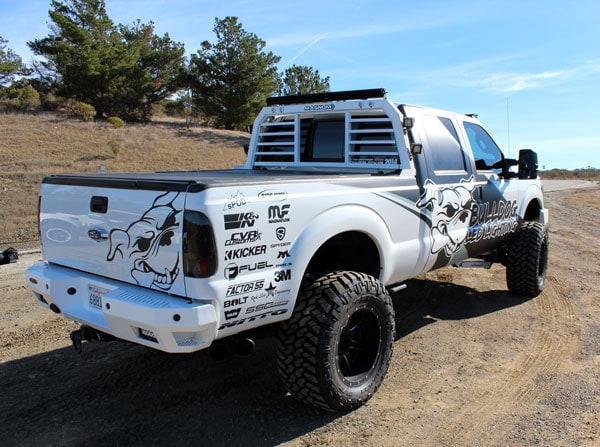
Leveling kits take advantage of your factory components. These kits are the most cost-effective and they’re usually the easiest to install. But the small price tag does mean that you get smaller gains when it comes to this kind of lift kit. With a leveling lift kit, you might gain an extra inch or two, but your ride will stay plusher. While that might not be great for off-roading, this might be a good option for you if you’re just using your vehicle to get to and from work every day.
Coil-overs are another beast entirely. While they’re a bit pricier, you’ll get more out of them. With coil overs, you can get an extra two to three inches of lift. But lift isn’t the only benefit you’ll get from coil-overs. Because of the way they integrate into your suspension system, they can provide extra control as you’re rolling your way around the hills or through mud puddles.
And if you’re looking for more than three inches, then you just might want to opt for a drop-down lift. When you hit that three to six-inch lift range, keep in mind that your pickup is going to ride a little different. The higher you go with your lift, the trickier things can get. If you don’t upgrade your suspension too (think shocks and struts), then your ride can get a little rough. And hauling can get tricky, too.
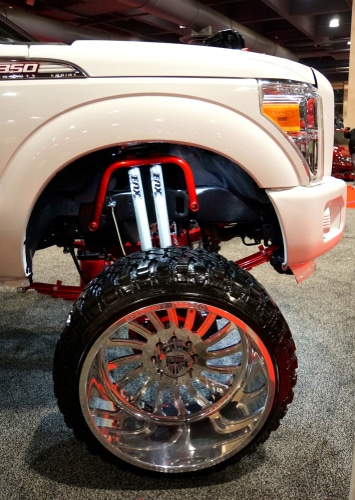
But the fun doesn’t stop there. When it comes to installing method, there are a few different options: a body lift or a suspension lift. A body lift literally raises the body of your vehicle off the frame. These kinds of kits consist of spacers to increase the distance between your truck body and the tires. A suspension lift kit creates lift by increasing the height of your suspension ride. This can not only help you fit a beefier set of tires on your rig, but it can also help give you a better off-road ride.
The Fine Print
Like many of the other aftermarket modifications we’ve talked about before, we wouldn’t be doing you any favors by leaving out the fine print.
We’ve talked about warranty woes from aftermarket modifications before. Like the diesel delete kits, lift kits might also void the factory warranty on your truck. This might not be an issue if you have an older or high mile model, but for new trucks, this might be a deal-breaker. Auto manufactures can be touchy about modifying their beloved projects, so keep in mind that adding a leveling, coil-over, or drop-down lift kit might have warranty implications.
There can also be legal restrictions on how much lift you can add to your truck. Some (but not all) states have regulations. Before you cough up a chunk of change for your new lift kit, you should check to see if there are any legal regulations in your neck of the woods.
Installing a lift kit usually isn’t the hardest part of the process – picking one is. But hopefully, this quick and dirty breakdown gave you everything you need to know before committing to a lift kit. So go forth, with your lift kit 101 understanding, and find that perfect match for you and your truck. And if you’re looking for other ways to trick out your ride, consider getting a pickup headache rack for your truck from Magnum Truck Racks!

